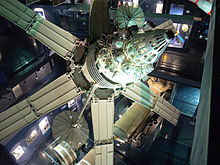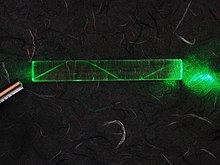What is Electrical Engineering? Electrical Engineering is that branch of Engineering which deals with the study of application of electric...
What is Electrical Engineering?
Electrical Engineering is that branch of Engineering which deals with the study of application of electricity, electronics and electromagnetism. Trained electrical engineers design electric circuits and equipment. They work on large power plants as well in small hardware companies which includes designing, manufacturing and operating power plants, industrial machinery, electrical motors, computer chips and ignition systems for automobiles, aircrafts, space crafts and all kinds of engines.
Electrical Engineering is spread across a range of specialties such as acoustics, speech, signal processing to electromagnetic compatibility, automobiles to vehicular technology, geo-science and remote sensing, laser and electro-optics, robotics, ultra-sonic, ferroelectrics and frequency control.
A qualified electrical engineer has the option to choose his/her line of work from a range of areas like computers, cell phone, electronic gadgets, radars, navigation systems, power plant, etc. Average starting salary of fresh electrical engineering graduates is Rs 4 lakh and upwards.
Electrical Engineering: Eligibility Criteria and Entrance Exams
Candidates can pursue Electrical Engineering at both graduate and postgraduate level. Below mentioned are the eligibility criteria to be fulfilled in order to pursue Electrical Engineering:
Minimum eligibility criteria to pursue Electrical Engineering (BTech) is class 12 pass in PCM/PCMB subjects with at least 50% marks in aggregate from a recognized school or university or equivalent
To pursue Electrical Engineering at post graduate level, the candidate must have a BTech degree in electrical engineering
Electrical Engineering Entrance Exams:
Admission to BTech/BE/MTech (Electrical Engineering) programmes in most of the institutes is based on entrance exam scores.
| WBJEE | COMEDK UGET | TNEA |
| CG PET | MET | UKSEE |
List of all engineering entrance exams
Electrical Engineering Courses
In India, Electrical Engineering degree course is offered by most of the Engineering institutes at UG, PG and doctorate levels like:
BE/BTech
ME/MTech
BSc
MSc
PhD
Electrical Engineering Syllabus
Some of the core topics in Electrical Engineering course are:
| Syllabus of Electrical Engineering | |
|---|---|
Calculus | Chemistry |
Physics | Elements of Electrical Engineering |
Art of Programming | Mathematics |
Analog Electronic Circuits | Network Analysis and Synthesis |
Electrical Transducers and Measurements | ICT Tools and Security |
DC Machines and Transformers | Digital Electronic Circuits |
Control System Engineering | Engineering Electromagnetics |
Rotating AC Machines | High Voltage Engineering |
Utilization of Electrical Power | Microprocessor and Micro controller |
Electrical Drives and Traction Systems | Testing, Commissioning and Maintenance of Electrical Equipment |
Digital Signal Processors for Electrical Engineering | Power System Protection and Switchgear |
Environment and Energy Studies | Electrical Workshop Practices |
Thermal and Hydraulic Prime Movers | Electrical Engineering Materials |
Fundamentals of Electrical Power System | Fundamentals of Power Electronics |
Analysis of Electrical Power System | Power Electronic Converters |
Power System Operation and Control | Electrical Machine Design |
Some of the Elective courses in Electrical Engineering include:
Electronic System Design | Permanent Magnet Brushless and Reluctance Motors |
Renewable Energy Sources | Advanced Microprocessors and Microcontrollers |
Signals and Systems | Dynamics and Modelling of Electrical Machines |
Extra High Voltage Transmission | Applications of Power Electronics in Power System |
Computer Techniques in Power System | Design of Permanent Magnet Brushless and Reluctance Motors |
Electromagnetic Interference and Electromagnetic Compatibility | Advanced Electrical Power System |
Control of Electric Drives |
|
Electrical Engineering: Job Profiles & Top Companies
Most people relate Electrical Engineering with wires and circuits but it is much more than that. Electrical Engineers are needed not only in construction or power industry but also in telecommunication, IT, navigation, railways, automobile, architecture, aerospace, defence, etc. From maintaining power grids to supervising research and development of electronic devices and technology to designing circuits for computers, Electrical Engineers are required in various fields.
This branch of Engineering is basically required broadly in two fields: Power and Telecommunication.
Power Engineers: Power Engineers are involved in generation and transmission of electricity. Their service is sought the most in automobile industry as they are responsible for designing, manufacturing and maintaining engines and maintaining the flow of power from the engine attached to devices. Power Engineers having specialized skills in microelectronics design and manufacture very small power circuits used in computers and other electronic devices. The average starting salary of Power Engineers is Rs 4 lakh and upwards.
Telecommunication Engineers: They mainly work on designing and maintenance of cables. Their service is also sought for production of receivers and transceivers. The average starting salary of Telecommunication Engineer is Rs 4 lakh and upwards. Key roles of an Electrical Engineer are:
Designing, manufacturing and operating power plants, industrial machinery, electrical motors, and ignition systems for automobiles, aircrafts, space crafts and other types of engines
Research and design improved ways for using electrical power
Compute the cost of manufacture, construction and installation of electrical equipment as per specifications
*The above mentioned salary data has been obtained from Payscale.com
Some of the Electrical Engineering jobs includes:
Control And Instrumentation Engineer | Electronics Engineer |
Broadcast Engineer | Electrical Engineer |
Design Engineer | Nuclear Engineer |
Consultant | Systems Analyst |
Electrical Engineering: Top Companies
Listed below are some of the top companies which recruit Electrical Engineers in various capacities:
Electrical Engineering: Top Companies | |
|---|---|
Bharat Heavy Electricals Limited | Siemens |
ABB India Limited | Havells India Limited |
Adani Power Limited | Crompton Greaves |
Jindal Steel & Power Limited | Bajaj Electricals Limited |
Alstom India Limited | General Electrics |
Larson & Turbo | Tata Electric Companies |
Philips | Gujarat Industries Power Company Limited |
Wipro | Kirloskar Group |
Sterling | Schnider Electric |
EMCO Limited | HBM Power System |
Eveready Industries India Limited | Exide Industries Limited |
Microtek | Ankit Electricals |
Finolex Cables Limited | Balar Marketing Private Limited |
Arihant Enterprises | Kaydour Cables India |
Mellcon Engineers | BL Power Systems Limited |
Ultra Electric Company India Pvt Ltd. | National Wind & Power Corporation |
Neolex Cables | DLF Power Limited |
Lanco Industries | Kuber Lighting Private Limited |
Electrical Engineering FAQs
Q. Who can apply for Electrical Engineering admission?
A. Candidates who have passed Class 12 exam with Physics, Chemistry and Mathematics as main subjects can apply for Electrical Engineering admission.
Q. Can a diploma passed candidate apply for Electrical Engineering admission?
A. If candidates have completed diploma in Electrical Engineering or Electrical & Electronics Engineering then they are eligible.
Q. What is the criteria to apply for admission for an ITI passed candidate?
A. An ITI passed candidate can is eligible for admission if he/she has passed ITI with Electrical or Electrcal & Electronics trade.
Q. Can a high school passed candidate apply for Electrical Engineering admission?
A. No, high school passed candidates apply for admission to ITI and Diploma only. They will be eligible for Electrical Engineering admission after completing Class 12/Diploma/ITI.
Q. What is the duration of the Electrical Engineering programme?
A. Bachelor of Engineering (BE)/Bachelor of Technology (BTech) in Electrical Engineering is a four years programme.
Q. What is the fees of Electrical Engineering programme?
A. The fees of Electrical Engineering programme varies from institute to institute.
Tools and work
From the Global positioning system to electrict power generation, electrical engineers have contributed to the development of a wide range of technologies. They design, develop, test, and supervise the deployment of electrical systems and electronic devices. For example, they may work on the design of telecommunication system, the operation of electrical power station the lighting and wiring of buildings, the design of household appliances, or the electrical control of industrial machinery.
Fundamental to the discipline are the sciences of physics and mathematics as these help to obtain both a qualitative and quantitative description of how such systems will work. Today most engineering work involves the use of computers and it is commonplace to use computer-aided design programs when designing electrical systems. Nevertheless, the ability to sketch ideas is still invaluable for quickly communicating with others.
Although most electrical engineers will understand basic circuit theory (that is the interactions of elements such as resistors, capacitors, diodes, transistors, and inductors in a circuit), the theories employed by engineers generally depend upon the work they do. For example, quantum mechanics and solid state physics might be relevant to an engineer working on VLSI (the design of integrated circuits), but are largely irrelevant to engineers working with macroscopic electrical systems. Even circuit theory may not be relevant to a person designing telecommunication systems that use off-the-shelf components. Perhaps the most important technical skills for electrical engineers are reflected in university programs, which emphasize strong numerical skills, computer literacy, and the ability to understand the technical language and concepts that relate to electrical engineering.[119]
A wide range of instrumentation is used by electrical engineers. For simple control circuits and alarms, a basic multimeter measuring voltage, current, and resistance may suffice. Where time-varying signals need to be studied, the oscilloscope is also an ubiquitous instrument. In RF engineering and high frequency telecommunications, spectrum analyzers and network analyzers are used. In some disciplines, safety can be a particular concern with instrumentation. For instance, medical electronics designers must take into account that much lower voltages than normal can be dangerous when electrodes are directly in contact with internal body fluids.[120] Power transmission engineering also has great safety concerns due to the high voltages used; although voltmeters may in principle be similar to their low voltage equivalents, safety and calibration issues make them very different.[121] Many disciplines of electrical engineering use tests specific to their discipline. Audio electronics engineers use audio test sets consisting of a signal generator and a meter, principally to measure level but also other parameters such as harmonic distortion and noise. Likewise, information technology have their own test sets, often specific to a particular data format, and the same is true of television broadcasting.
future Is electrical.










No comments
Comment down